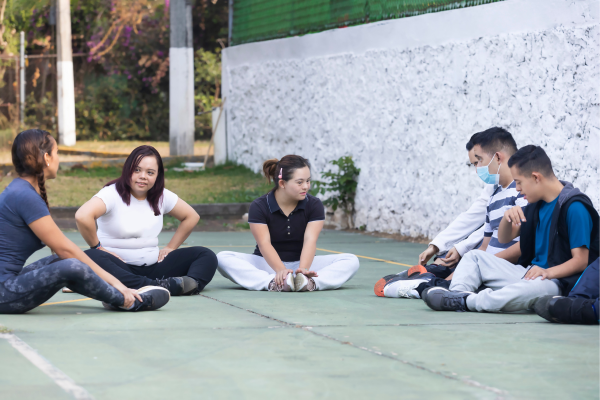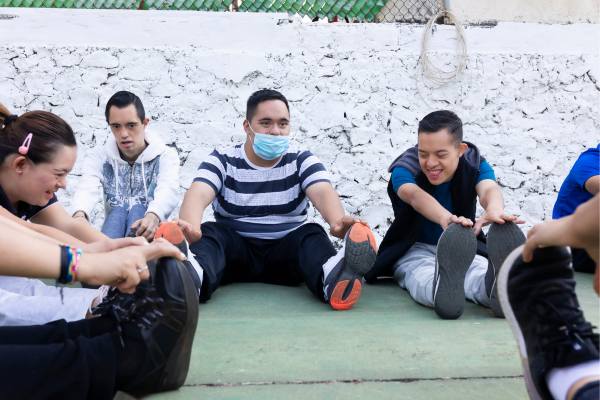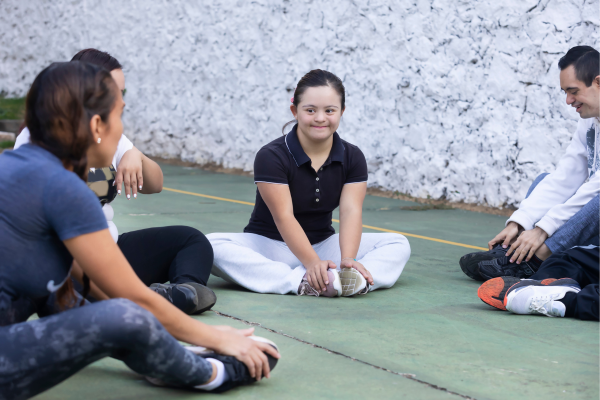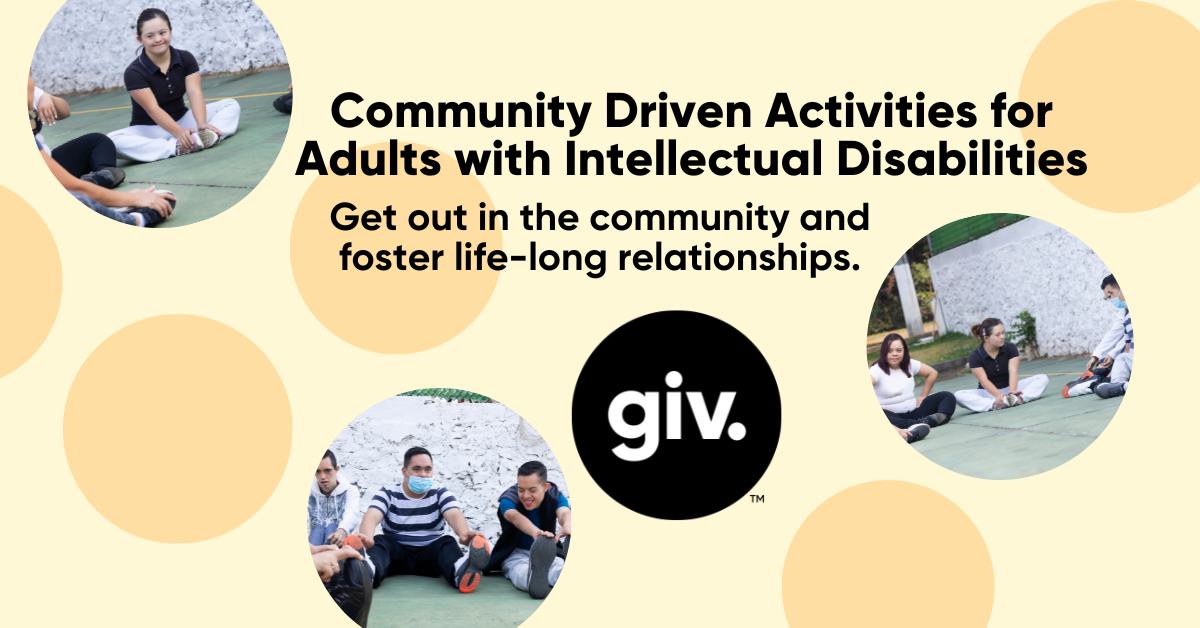Inclusivity and community engagement are vital for individuals with intellectual disabilities to lead fulfilling lives. Community driven activities for adults with intellectual disabilities not only fosters social inclusion but also enhances physical and mental well-being.
Community Driven Activities for Adults with Intellectual Disabilities:
Engaging in community-driven activities is of utmost importance for adults with intellectual disabilities as it offers numerous benefits that enhance their overall well-being. Research has shown that participation in such activities promotes social inclusion, physical health, and mental well-being. According to a study published in the Journal of Applied Research in Intellectual Disabilities, community-driven activities provide individuals with intellectual disabilities the opportunity to develop social skills, improve communication abilities, and foster a sense of belonging within their communities (Foley et al., 2020). These activities create inclusive spaces where individuals can interact, form friendships, and share experiences with their peers, thus reducing social isolation and improving overall quality of life.
Furthermore, research conducted by Shikako-Thomas et al. (2012) highlights the positive impact of community-driven activities on the physical and mental health of adults with intellectual disabilities. Engaging in physical activities, such as adaptive sports programs and community gardening, has been shown to improve physical fitness, motor skills, and coordination. Additionally, participating in art classes or workshops provides individuals with intellectual disabilities a means of self-expression and a creative outlet, leading to improved emotional well-being and increased self-esteem. These findings underscore the significance of community-driven activities in promoting holistic development and empowerment among adults with intellectual disabilities.

Community Driven Adaptive Sports Programs:
Adaptive sports programs offer a unique opportunity for adults with intellectual disabilities to engage in physical activities tailored to their abilities. These programs break down barriers and provide inclusive environments for individuals to develop their athletic skills, foster teamwork, and build self-confidence. Activities such as wheelchair basketball, adaptive swimming, and track and field not only promote physical well-being but also encourage socialization and healthy competition.
Participation in adaptive sports empowers adults with intellectual disabilities by showcasing their abilities rather than focusing on their disabilities. Through these programs, they can experience the joy of teamwork, celebrate accomplishments, and develop a sense of belonging within a supportive community. The benefits extend beyond the physical realm, as participants often report improved self-esteem, enhanced social skills, and a greater sense of purpose.
Art Classes or Workshops: Unleashing Creativity and Self-Expression
Art classes and workshops provide adults with intellectual disabilities a platform for creative expression, allowing them to explore various art forms and unleash their artistic potential. Painting, sculpture, pottery, and photography are just a few examples of mediums that can be adapted to suit individual needs and preferences. By participating in art activities, individuals can develop their fine motor skills, enhance cognitive abilities, and express their emotions in a safe and inclusive environment.
Beyond the artistic benefits, art classes and workshops foster social connections among participants. Sharing a common interest in art creates opportunities for individuals to interact, collaborate, and learn from one another. Additionally, the sense of accomplishment derived from creating art boosts self-confidence and self-worth, empowering adults with intellectual disabilities to embrace their unique talents and contribute meaningfully to the community.

Volunteer Opportunities: Engaging in Meaningful Contributions
Volunteer work is a powerful way for adults with intellectual disabilities to actively participate in their community and make meaningful contributions. By engaging in volunteer activities, individuals can develop a sense of purpose, gain new skills, and establish connections with others. Look for local organizations that offer inclusive volunteer programs, such as assisting at animal shelters, community gardens, food banks, or libraries.
Participating in volunteer opportunities empowers individuals with intellectual disabilities to showcase their strengths and talents while making a positive impact. Through these experiences, they develop valuable life skills, such as responsibility, time management, and teamwork. Furthermore, volunteering promotes social integration and a sense of belonging within the community, fostering a more inclusive and empathetic society.
Social Clubs or Groups: Fostering Connections and Friendship
Social clubs or groups tailored to adults with intellectual disabilities create spaces where individuals can socialize, form friendships, and engage in shared activities. Book clubs, movie nights, game nights, and hobby-based groups provide platforms for interaction, conversation, and the exploration of common interests. These inclusive environments encourage individuals to express themselves, build relationships, and develop social skills.
Participation in social clubs or groups not only promotes socialization but also combats feelings of isolation that individuals with intellectual disabilities may experience. By fostering a sense of community and belonging, these activities nurture personal growth, self-advocacy, and emotional well-being. The friendships formed within these groups often extend beyond the scheduled activities, leading to a support network that provides ongoing encouragement and companionship.

Community Garden Projects: Cultivating Growth and Connection
Engaging in community garden projects offers numerous benefits for adults with intellectual disabilities, including physical activity, connection with nature, and learning opportunities. Working together in a shared garden space promotes teamwork, patience, and responsibility while teaching valuable horticultural skills. Participants can cultivate plants, learn about sustainable practices, and experience the joys of growing and harvesting their own food.
Community garden projects also foster social connections and a sense of community. Participants bond over shared tasks, exchange knowledge, and support one another throughout the gardening process. Additionally, these projects often provide opportunities for individuals to contribute fresh produce to local food banks or share their harvest with the community, thus making a tangible impact and nurturing a sense of purpose.
Community-driven activities play a pivotal role in empowering adults with intellectual disabilities. From adaptive sports programs that promote physical empowerment to art classes that foster self-expression, these activities enable individuals to actively engage in their community, cultivate their skills, and form meaningful connections. By embracing inclusion, providing support, and promoting accessibility, communities can create environments that celebrate the abilities and potential of all individuals, regardless of their disabilities. Together, let us strive to build a more inclusive society where everyone can thrive and participate fully in community life.






